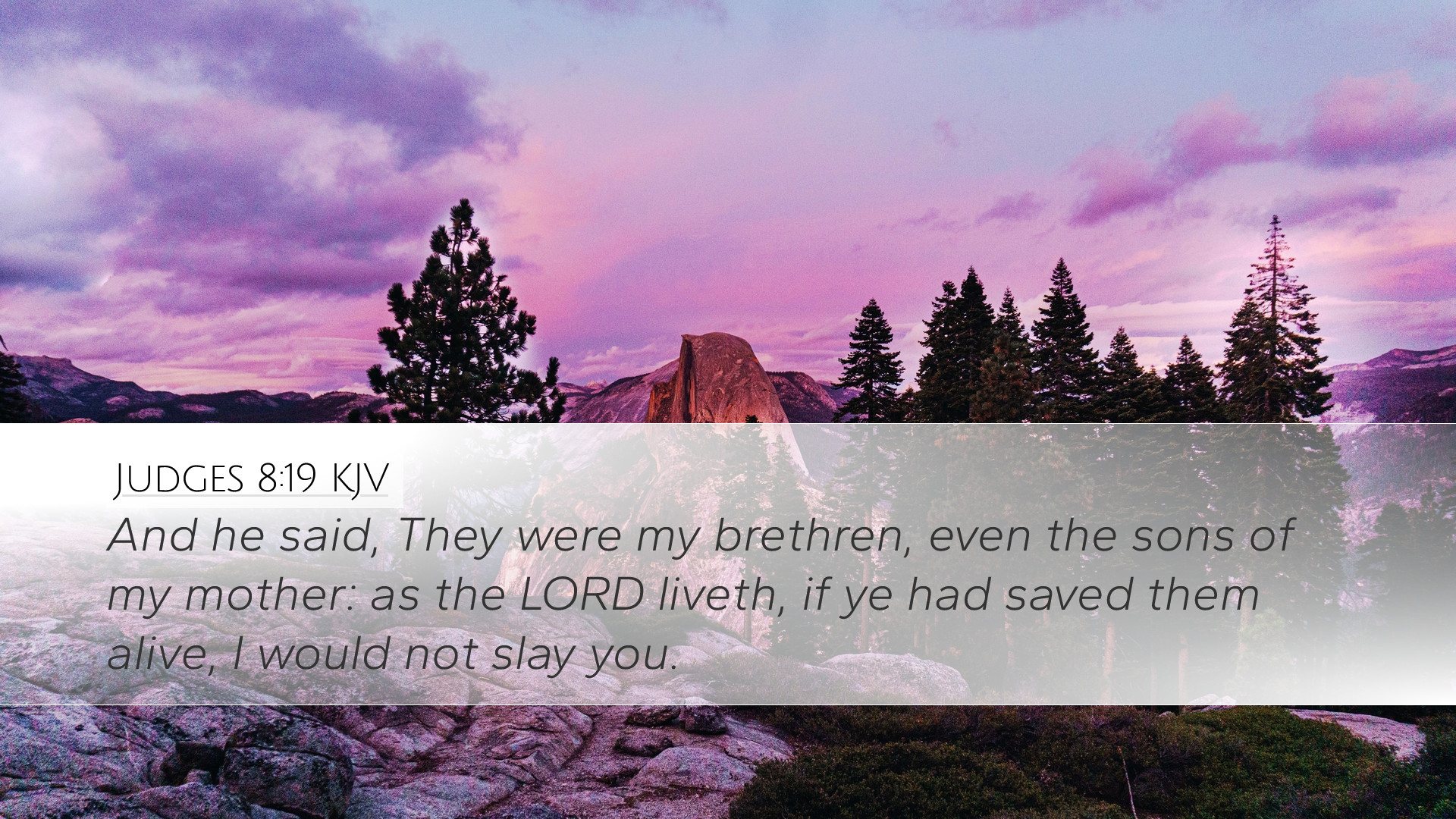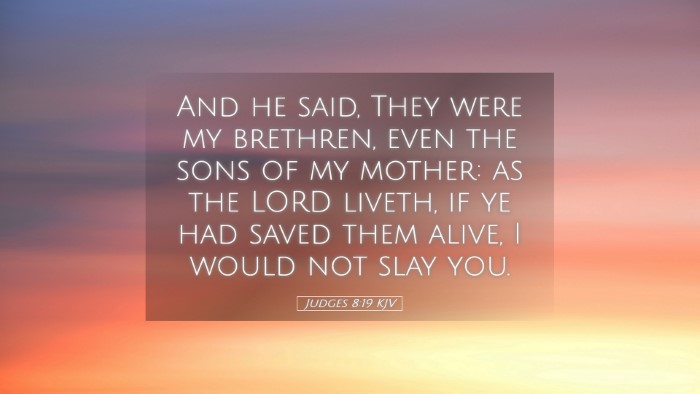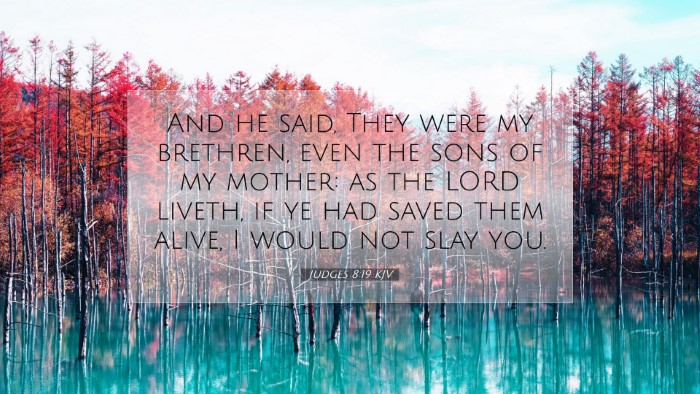Bible Commentary on Judges 8:19
Verse in Context: Judges 8:19 states: "And he said, 'They were my brothers, the sons of my mother. As the Lord lives, if you had saved them alive, I would not kill you.'" This verse comes from a pivotal moment in the narrative of Gideon in the Book of Judges, highlighting themes of family loyalty, justice, and the moral complexities faced by leaders.
Contextual Background
The events in Judges revolve around Israel's cyclical pattern of sin, oppression, repentance, and deliverance. Gideon, chosen by God to free the Israelites from Midianite oppression, has led a decisive victory but is faced with moral dilemmas following his triumph.
Theological Themes
This verse encapsulates several theological themes that warrant deeper examination:
- Kinship and Loyalty: Gideon’s statement emphasizes the weight of familial relationships in Israelite culture. Family bonds often influenced one's decisions and moral standings.
- Moral Dilemma: Gideon confronts the tension between duty as a leader and affection for his kin. He grapples with the consequences of his actions and the righteousness of his decisions.
- Divine Justice: The verse implies a standard of justice that Gideon is trying to uphold, reflecting the larger biblical principle of divine retribution and justice.
Commentary Insights
Matthew Henry
Matthew Henry elaborates on the circumstances that lead Gideon to confront these actions. He notes that Gideon’s reference to his brothers highlights his grief and aversion to unnecessary bloodshed, rooted in his heritage. He emphasizes that great leaders often bear the burden of conflict between their personal and public responsibilities.
Albert Barnes
Albert Barnes provides insights into Gideon's motivations, noting that his claim of familial ties serves both as a justification and a lament. Barnes argues that Gideon's references reveal his inner turmoil; rather than seeking vengeance, he is more concerned about the implications of his actions, suggesting a tragic element in his leadership. He stressed that Gideon is determined to execute justice only because of their part in the murder of his brothers, which reflects the seriousness of the situation.
Adam Clarke
Adam Clarke offers a broader interpretation, suggesting that Gideon’s declaration underscores the cultural expectation of vengeance upon those who harm family members. Clarke argues that Gideon’s righteous indignation is tempered with a sense of justice that reflects a divinely ordered response to the wrongdoing against his kin. He highlights that Gideon's actions must also be seen against the backdrop of Israel's larger spiritual failures, where personal vendettas often assume disproportionate importance.
Application for Today
The implications of Judges 8:19 are profound for contemporary readers, particularly for pastors and theologians. It raises pressing questions regarding the nature of justice, the weight of familial duty, and moral integrity in leadership.
- Leadership Responsibilities: How do leaders balance loyalty to family with their broader responsibilities to communities? This is a persistent question for church leaders today.
- Moral and Ethical Reflections: In what ways do we discern personal feelings and familial ties as we navigate difficult ethical dilemmas? The need for discernment in moral choices remains imperative.
- Justice versus Vengeance: Gideon’s challenge prompts a reflection on what constitutes just actions in the face of personal loss. The distinction between justice and vengeance is a theme that runs deeply in scriptural narrative and modern ethics.
Conclusion
Judges 8:19 presents a richly layered narrative that speaks to the complexities of leadership, family, and justice. By examining the insights from Matthew Henry, Albert Barnes, and Adam Clarke, we can appreciate the depth of Gideon’s emotional and ethical struggle. This reflects the broader human experience, prompting us to reflect on our own values and actions in light of divine expectations.


